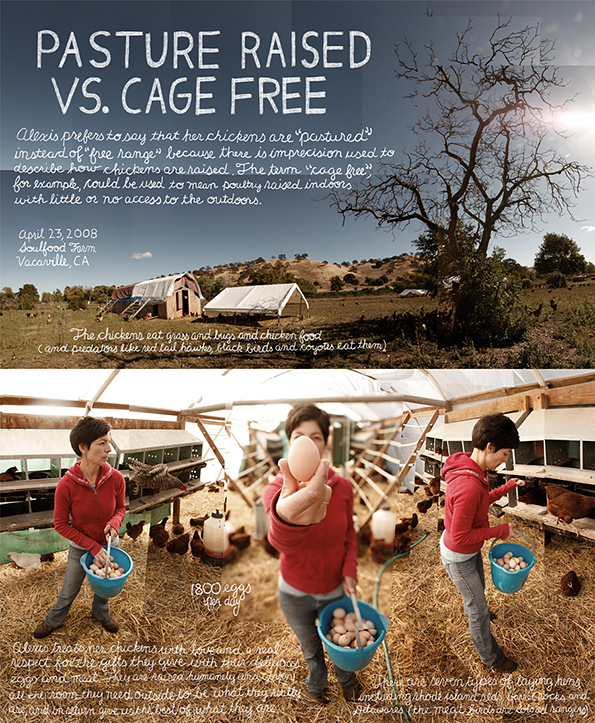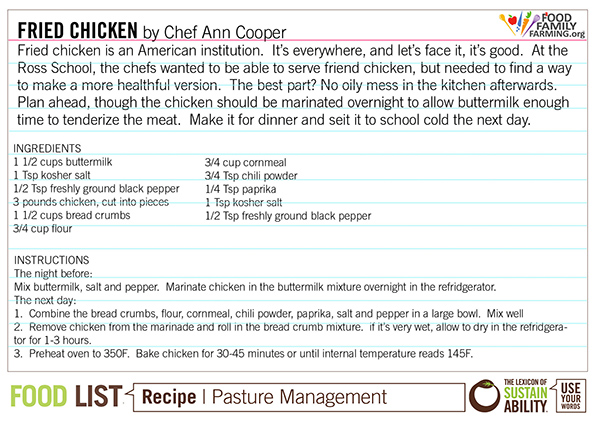
Pasture-raised, free range, cage free: what's the difference? @deliciousliving @lexiconproject #foodlist #farming
Pasture Management: Pasture managers view their field as a viable renewable resource. They use cattle and poultry to harvest the solar energy stored in the grasses, converting it into nutrient-dense food, and maintaining the pasture’s biodiversity.
Confused about the difference between the terms "pasture-raised," "free range," and "cage free"? Here's a brief rundown: An animal that is pasture-raised has been raised on pasture with access to shelter. Free range only requires that animals be allowed access to the outside; it doesn't specify how large this outside space must be, or the amount of time they are allowed to spend there. Cage-free is possibly the most deceptive term; all it requires is that poultry is not raised in cages. Chickens can still live their entire lives confined to a barn.
Alexis Koefoed of Soul Food Farm (pictured above) in Vacaville, California, recalls the first time she heard the term cage-free:
“I got kind of excited. I thought maybe there were free chickens running around. It took a little research, and I found out it didn’t mean much. Actually, the chickens were still in big huge houses on industrial factory farms. I didn’t think it was anything more than just good marketing, so we think things are nicer and sweeter and kinder than they really are.”
Short film: "Grass, Water, Cows" by The Perennial Plate
In Argentina, beef is a way of life. But over the last few decades, the traditional methods of raising cows on grass has faded away and been replaced by the feedlot model. Las dos Hermanas Ranch maintains the old ways of managing the grass, water, and cows.
Watch:
Recipe: Fried Chicken by Chef Ann Cooper
Looking for a healthier version of this classic dish? Chef Ann Cooper has you covered. Just marinate, roll in the bread crumb mixture, and bake in the oven—no oily mess to clean up afterwards.
How do the terms pasture-raised, free range, and cage free affect your food choices? Tell us on Twitter and Facebook, and follow us for more on pasture management throughout the week.
For the past three years, the Lexicon of Sustainability has sought out the foremost practitioners of sustainability in food and farming to gain their insights and experiences on this important subject. What began as a photography project to spread their knowledge has grown to include short films, study guides, traveling shows, a book, and a website where people can add their own terms to this ever-evolving lexicon. See more at www.lexiconofsustainability.com.


